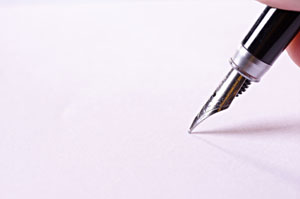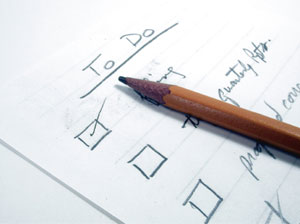You may have thought about taking a course on proofreader training, only to discover that it was geared towards professional proofreaders. You don't have to be a professional proofreader to do a better job proofreading your own writing.
It's difficult to catch your own mistakes because you read what you expect to see when you check over something you have written. A common example of this is writing you when you mean to write your—or vice versa. You read the word you intended to write, and the error doesn't register as a mistake.
To proofread thoroughly, it's important to know the types of errors that are most common. The following can serve as a checklist:
Types of Errors
- Incorrectly spelled names
- Reversed numbers in addresses
- Incorrect dates
- Incorrect or inconsistent capitalization
- Doubly typed words or phrases
- Omissions of words or parts of words
- Incorrect or deleted punctuation
- Non-agreement of subject and verb
- Misspelled words
Often it isn't possible to ask a colleague to proofread your work. When you are struggling to meet a deadline or writing "on the road," you have to be your own editor/proofreader. The following general tips should produce professional results.
Tips
- Proofread from a printed copy, not the computer screen.
- When you find one error, be aware that you may find a cluster of errors nearby.
- Watch for words that are commonly misused, misspelled, or sound similar but have different meanings (e.g., except/accept, moral/morale, intense/intensive).
- Allow some time between writing and proofreading so you can look at the document with fresh eyes.
- Always proofread one last time before you print or send a document.
Most of us use a spell checker program, a software tool that allows writers to check their spelling, when we write on the computer. It is a terrific aid to proofreading, but it does not replace a dictionary and the need to proofread carefully for several reasons. Let's review what a spell checker program can and cannot do.
Spell Check can do the following:
- Identify misspelled words
- Find double occurrences of words
- Identify double capital letters at the beginning of a word
- Identify when a small letter precedes a capital letter
- Accommodate additions to the dictionary of unusual words you commonly use
Spell Check cannot do the following:
- Find typographical errors that appear to be correct
( form instead of from , be long instead of belong ) - Point out grammatical errors
( their instead of they're , its instead of it's ) - Identify poor sentence sense and syntax
Most of us are not proofreaders by trade—nor do we want to be. However, you can learn to more accurately proofread your writing to catch mistakes before others do. Proofreading is relatively easy and fast. If you commit to proofreading all of your documents—including e-mail, your business writing will appear more polished and professional.
Author

Catherine Hibbard
Catherine S. Hibbard is a nationally recognized expert in business and technical writing. Her company, Cypress Media Group, is an advertising, public relations, and training firm that provides training and consulting primarily related to business and technical writing, presentation skills, and media relations.











